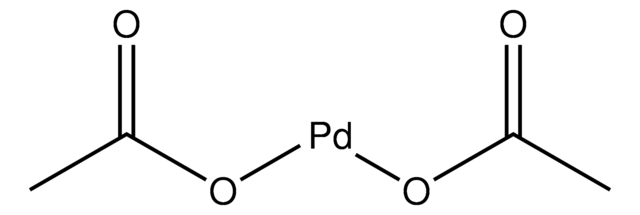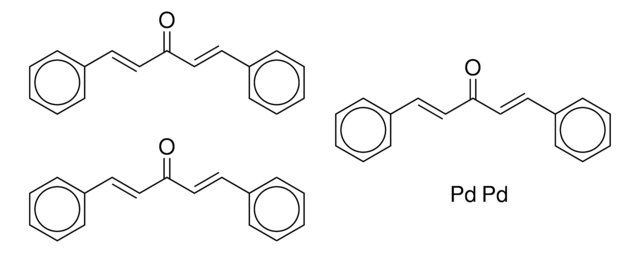746428
Potassium iodide
anhydrous, free-flowing, Redi-Dri™, ACS reagent, ≥99%
About This Item
Recommended Products
grade
ACS reagent
anhydrous
Quality Level
vapor pressure
1 mmHg ( 745 °C)
product line
Redi-Dri™
Assay
≥99%
form
crystals
quality
free-flowing
impurities
≤0.001% N compounds
≤0.005% insolubles
loss
≤0.2% loss on drying
pH
6.0-9.2 (25 °C, 5%)
mp
681 °C (lit.)
anion traces
chloride, bromide (as Cl)-: ≤0.01%
iodate (IO3-): ≤3 ppm
phosphate (PO43-): ≤0.001%
sulfate (SO42-): ≤0.005%
cation traces
Ba: ≤0.002%
Ca: ≤0.002%
Fe: ≤3 ppm
Mg: ≤0.001%
Na: ≤0.005%
heavy metals (as Pb): ≤5 ppm
SMILES string
[K+].[I-]
InChI
1S/HI.K/h1H;/q;+1/p-1
InChI key
NLKNQRATVPKPDG-UHFFFAOYSA-M
Looking for similar products? Visit Product Comparison Guide
General description
Redi-Dri™ technology eliminates clumping and the need for complicated procedures to keep your salts free-flowing. Keeping your salts dry helps improve your results by giving accurate measurements and easier-to-handle salts and buffers. Rather than drying your salts in an oven or desiccator or breaking them apart manually, Redi-Dri™ ensures that your salts will remain easy-to-use for months without worrying about anti-caking agents. Even after repeated openings you can be assured that your results are always accurate. Redi-Dri™ saves you time, energy and money by keeping your salts usable for longer!
Application
- Conversion of aromatic primary amines to the corresponding nitro compounds in the presence of tert-butyl hydroperoxide as oxidant.
- Conversion of aryl halide to aryl iodides in the presence of nickel catalysts.
- Preparation of sulfonated oxindoles from activated alkenes and sulfonylhydrazides in water and in the presence of 8-crown-6 and tert-butyl hydroperoxide.
Features and Benefits
- Increased efficiency – Eliminate time and effort of loosening hardened powders
- Safety – Avoid risks of using tools of force to break up clumps
- Economy – Faster preparation and solvation increase productivity and reduce costs
- Assured quality – Excellent, expert-tested quality with no anti-caking agents
- Flexible volumes – Available from research amounts to scale-up quantities
Legal Information
Signal Word
Danger
Hazard Statements
Precautionary Statements
Hazard Classifications
STOT RE 1 Oral
Target Organs
Thyroid
Storage Class Code
6.1D - Non-combustible acute toxic Cat.3 / toxic hazardous materials or hazardous materials causing chronic effects
WGK
WGK 3
Flash Point(F)
Not applicable
Flash Point(C)
Not applicable
Certificates of Analysis (COA)
Search for Certificates of Analysis (COA) by entering the products Lot/Batch Number. Lot and Batch Numbers can be found on a product’s label following the words ‘Lot’ or ‘Batch’.
Already Own This Product?
Find documentation for the products that you have recently purchased in the Document Library.
Customers Also Viewed
Our team of scientists has experience in all areas of research including Life Science, Material Science, Chemical Synthesis, Chromatography, Analytical and many others.
Contact Technical Service








